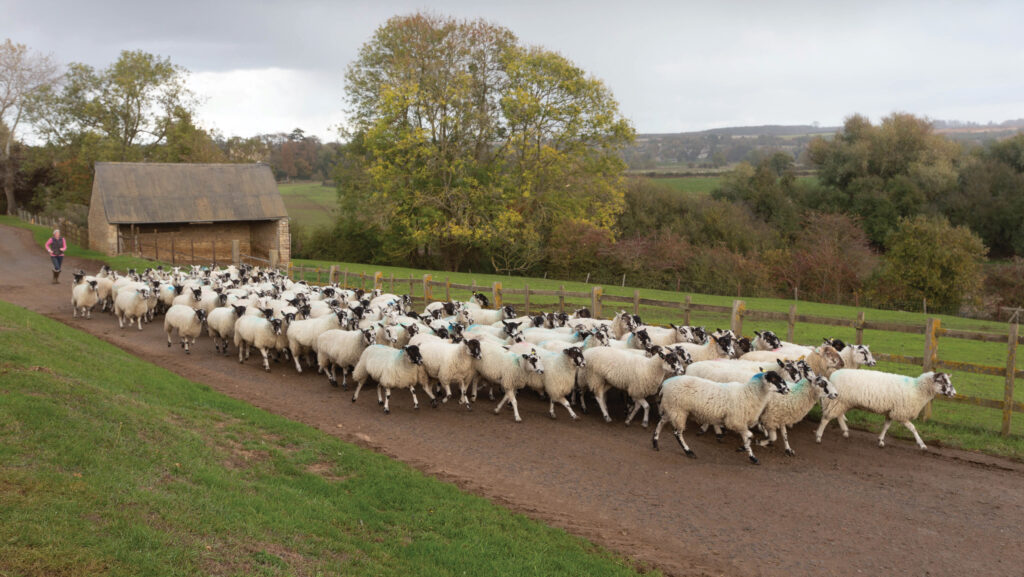Methane must not be sole focus of sustainable ag, says NSA
 © Tim Scrivener
© Tim Scrivener The National Sheep Association (NSA) has released a report to highlight to policymakers the holistic role the sheep industry plays in sustainable agriculture and how focusing solely on “carbon and methane” would be wrong.
Produced in association with Harper Adams University School of Sustainable Food and Farming, UK sheep farming and the sustainability agenda: a review of the evidence and ways to deliver more was launched at the NSA Sheep Event in Malvern.
See also: Carbon footprint study shows scope for beef and sheep efficiency gains
The report emphasises four key pillars of sustainability – environment, economics, health and society – and says all must be considered together, rather than in isolation.
NSA chief executive Phil Stocker told a packed seminar tent: “In doing this report, we wanted to raise the other issues of sustainability. We can’t be measured on one metric alone. We must be measured in a much more holistic fashion.”
Lead author of the 28-page document, Prof Jude Capper from Harper Adams, said every system and breed had the potential to be sustainable.
“We can’t just look at carbon. Carbon has been the focus from a processor, retailer and policymaker point of view, but we’ve got to look at the bigger picture.”
She said grazing is the best land use for 65% of UK land and that, along with the benefits the sheep industry brings, this needs to be communicated more widely.
“Sheep give us food, natural fibres, they improve the soil and biodiversity, [deliver] carbon sequestration and water filtration. So many rural towns and villages are utterly dependent on the [sheep] industry. That’s incredibly important for tourism and economies.”
She added that biodiversity and efficiency could be improved together, regardless of how extensive or intensive systems were.
Opportunities for improvements
Jude said there was a huge variation in the carbon footprint of UK sheep farms, ranging from less than 10kg carbon dioxide equivalent (CO2e)/kg liveweight to 55kg-plus, adding: “Because there’s so much variation, that gives up opportunities to improve.”
The report considers what more can be done to improve the sector’s green credentials and how feed choice, pasture quality, health and welfare and genetics and productivity can help.
Within the report, the NSA is calling for farm schemes to cover carbon auditing and for one tool or standardised metrics to help build a national picture.
Data and benchmarking are key
Jude said the adoption of GWP* would be a “game-changer” for the sheep industry because it cuts the climate impact of methane by two-thirds.
“We have to have the right metrics to accurately reflect the contribution of our industry to greenhouse gas emissions.”
She pleaded with farmers to collect more data and benchmark performance to help identify areas for improvement and learn “from the best”.
The report contains 17 examples of sheep farmers across the UK improving environmental and economic sustainability.
NSA hopes the document will inform and influence policy support, market development and practical applications at farm level in the future.
The full report is available at the NSA’s website.
